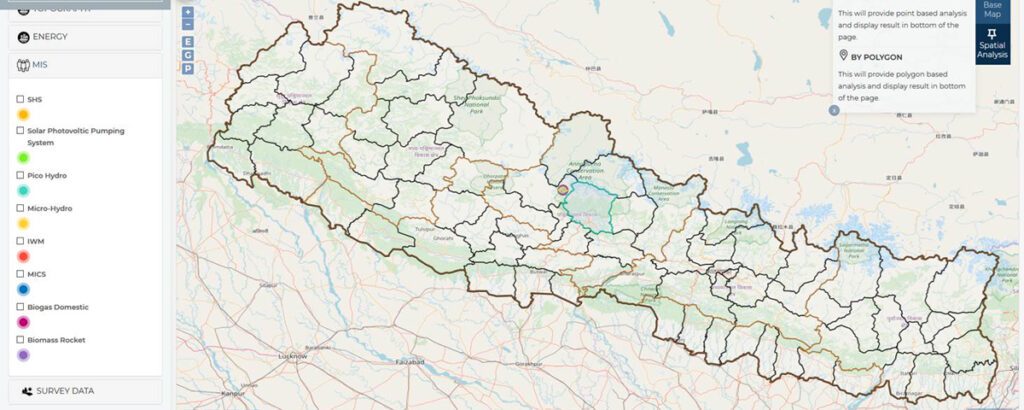MEP-Tool for energy planning in Nepal

Project description
In this project, RLI supported the development of a GIS-based energy planning tool in Nepal. The tool is developed by the Nepal Alternative Energy Promotion Centre (AEPC) and the Deutsche Gesellschaft für Internationale Zusammenarbeit (GIZ) GmbH as part of a technical support program (RERA – Renewable Energy for Rural Areas) and aims to expand the use of small-scale decentralized renewable energy in Nepal.
Since the introduction of the constitution in 2015, Nepal consists of seven provinces within a federal state. Responsibility for implementing energy supply measures lies with the local governments. The Municipal Energy Planning Tool (MEP) will be used to support them in this endeavor. The tool can display existing energy resources, already installed renewable energy plants, and the energy demand in the individual regions and, based on this, makes proposals for the economically and ecologically best option for electrifying individual household clusters.
The data for the tool is, among other sources, based on household surveys in Nepal. The RLI’s task was to review this data and transfer it to the tool. In addition, the function of the tool was tested and suggestions for improving the underlying algorithm were developed.
Project duration: September – November 2018
Tasks
- Testing of the MEP-Tool
- Development of suggestions for improvement
- Conducting a workshop in Kathmandu with the development team of the tool
Results
- The data from the household surveys were transferred to the MEP tool and the tool was successfully tested.
- Suggestions for improvements to the tool’s function were developed.
- A workshop with the development team of the tool was successfully conducted in Kathmandu.
